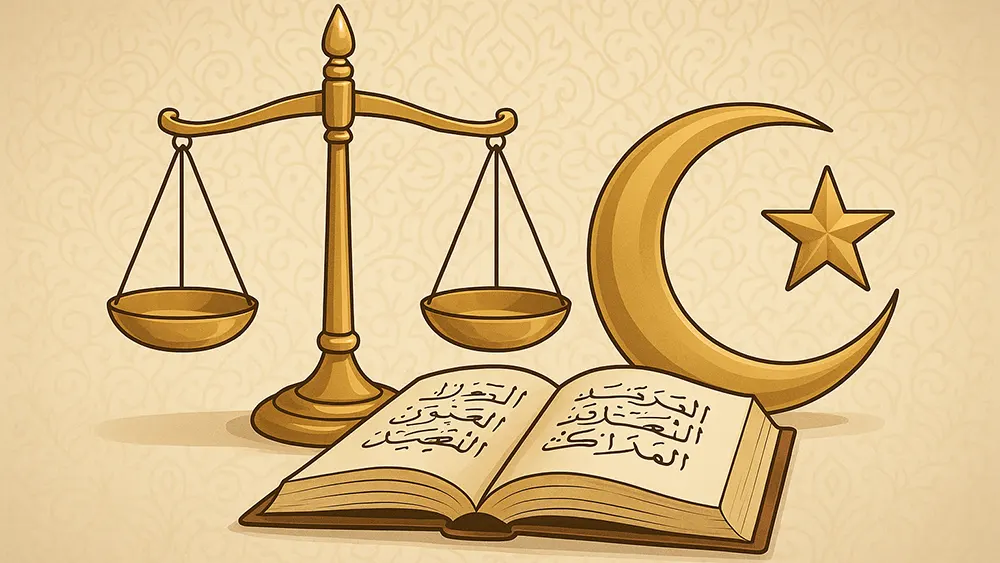Introduction
Islamic Sharia is the divine system revealed by Allah to regulate human life. It includes the rulings found in the Qur’an and Sunnah and aims to preserve religion, life, intellect, lineage, and wealth. It played a major role in shaping a great civilization.
Sharia consists of two types of rulings:
Definitive Rulings
Clearly stated in the Qur’an or Sunnah, not open to reinterpretation—like prohibition of usury and adultery, or obligation of prayer and zakat. These are fixed and timeless.
Speculative and Ijtihadi Rulings
Derived by scholars based on context—like regulating finance or administrative systems. These adapt over time and space.
Sharia is a system of fixed rulings and evolving principles to ensure justice and mercy, guiding life both spiritually and practically.
This article outlines its concept, characteristics, scope, and how it differs from jurisprudence (fiqh), with a modern perspective.
1. The Concept of Sharia
Linguistically
“Sharia” means a clear path or a water source.
Technically
It refers to God’s legislation in belief, worship, dealings, and morals as found in the Qur’an and Sunnah.
It defines what is lawful/unlawful, obligatory, recommended, disliked, or prohibited.
2. Sources of Sharia
1. Qur’an
God’s word revealed to Prophet Muhammad ﷺ. It includes detailed rulings and universal principles.
2. Sunnah
The Prophet’s words, actions, approvals. It clarifies the Qur’an and applies it practically.
3. Sharia vs. Fiqh
🕌 Sharia (Fixed, Divine Rulings):
-
Ban on adultery, usury
-
Obligatory worships
-
Justice in dealings
📘 Fiqh (Variable, Interpretive Issues):
-
Modern zakat distribution
-
Credit card rulings
-
Corporate and judicial systems
Sharia
-
Divine source
-
Covers creed, ethics, worship, transactions
-
Unchanging core
Fiqh
-
Human interpretation
-
Application of Sharia in context
-
Sources: Qur’an, Sunnah, consensus, analogy, etc.
So: Sharia is divine. Fiqh is human understanding.
4. Characteristics of Sharia
1. Divine Origin
2. Comprehensiveness
3. Stability with Flexibility
4. Justice and Equality
5. Human Nature Compatibility
5. Domains of Application
1. Worship
2. Transactions
3. Personal Law
4. Morality
5. Criminal Punishments
6. Sharia in the Modern World
-
Collective ijtihad
-
Maqasid consideration
-
Legal tools like maslahah and istihsan
Sharia is dynamic, not rigid, and evolves through scholarly discipline.
7. Historical Sharia Models
-
Suspension of theft punishment during famine
-
Full rights to non-Muslims
-
Justice even against rulers
Conclusion
Sharia is a complete divine life system—unlike fiqh, which is human effort to apply it.
Facing modern challenges, we must revisit Sharia with renewal, balancing values and people’s needs. It’s not a barrier—but a path to true revival.


